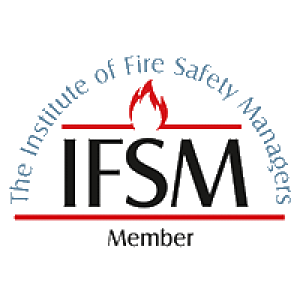While the main five types of fire extinguisher—water, foam, CO2, dry powder, and wet chemical—cover most fire risks in typical UK workplaces, certain environments demand a more specialised approach.
From laboratories to heritage buildings and data centres, specialist fire extinguishers provide targeted protection for unique risks.
In this guide, we’ll explore the main types of specialist extinguishers, where they should be used, relevant British Standards, and how ESI can help you stay compliant and safe.
1. Metal Fire Extinguishers (Class D)
Fires involving combustible metals such as magnesium, titanium, aluminium, and lithium require specialist metal fire extinguishers.
These use powders such as L2 or M28, which smother burning metal without reacting dangerously (as water would).
Where to Use:
- Laboratories and R&D facilities
- Engineering and metalworking plants
- Battery storage areas involving lithium
Important: Using the wrong extinguisher on metal fires can cause explosions or spread the burning material.
2. Clean Agent Extinguishers (Halotron/FE-36)
Clean agent extinguishers use gases like FE-36 to suppress fires without leaving residue.
They’re ideal where sensitive electronics, archives, or museum collections are present.
Where to Use:
- Server rooms and data centres
- Telecoms facilities
- Archives, museums, and heritage sites
Clean agents are valued for their minimal cleanup and lack of damage to delicate equipment.
Water Mist Extinguishers
Water mist extinguishers produce a fine mist of de-ionised water, creating a cooling effect and displacing oxygen.
Uniquely, they can often be safely used on live electrical equipment and across multiple fire classes (A, B, F, and some electrical fires).
Where to Use:
- Hospitals and healthcare facilities
- Heritage properties and listed buildings
- Hotels and public venues with diverse fire risks
British Standards and Servicing
Like all extinguishers, specialist units must meet BS EN 3 standards, which cover performance, design, labelling, and testing.
They also fall under BS 5306-3, which sets out rules for commissioning, servicing, and maintenance.
Commissioning
Specialist extinguishers must be commissioned on site by a competent technician.
This ensures they’re installed in the correct location, mounted properly, checked for damage, and recorded on your maintenance log with the appropriate labels.
Servicing
Annual servicing is required by law. For specialist extinguishers, this includes:
- Checking hoses, nozzles, gauges, and seals
- Confirming weight and pressure
- Inspecting the unit for corrosion or damage
- Ensuring correct signage and instructions remain clear
For certain models (such as water mist), five-year extended servicing may include discharging and internal inspection.
Signage and Staff Awareness
Because specialist extinguishers are often used in unique environments, ensuring clear signage and staff training is crucial.
Staff should know:
- What the extinguisher is for
- What types of fire it can be used on
- Any restrictions on its use
This prevents misuse that could put people or property at risk.
Fire Safety Training: Knowledge That Saves Lives
Fire extinguishers are only part of an effective fire safety plan—staff also need to know how and when to use them safely.
Fire safety training equips your team with the knowledge to identify fire risks, choose the correct extinguisher type, and tackle small fires without putting themselves in danger.
It also covers evacuation procedures, raising the alarm, and understanding legal responsibilities under UK fire safety law.
At ESI, we can provide fire safety training tailored to your workplace, helping you build confidence, competence, and compliance across your team.
How ESI Can Help
At ESI, we offer comprehensive solutions for specialist fire extinguishers:
- Supply: Certified units from leading manufacturers, suitable for your specific risk profile
- Install: Commissioning and placement by qualified engineers
- Maintain: Annual servicing and extended servicing in line with UK regulations
- Decommission: Safe removal and disposal of obsolete units
- Recycle: Environmentally responsible recycling of old extinguishers
Protect Your Unique Environment
Specialist risks require specialist solutions. Whether you manage a lab, data centre, hospital, or heritage site, having the right extinguishers in place is essential for compliance and peace of mind.
Get in touch with ESI today to schedule a free survey or talk to our team about specialist fire extinguishers for your premises.









